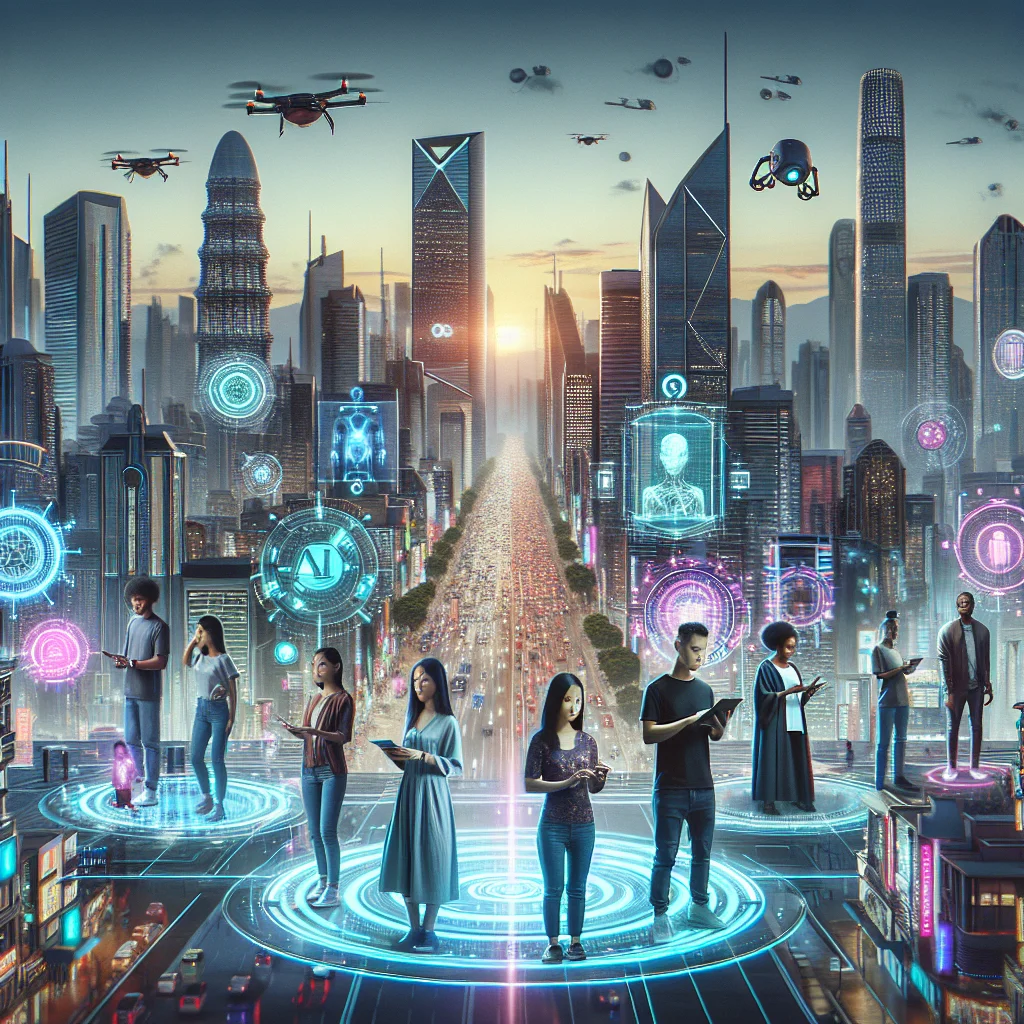Navigating the AI Landscape: Key Innovations in 2025
April 24, 2025

Artificial Intelligence continues to evolve at a breakneck pace, significantly impacting various sectors by enhancing efficiencies and creating new opportunities for innovation. As we advance into 2025, several key trends and technologies are shaping the AI landscape, each offering unique prospects for organizations looking to leverage AI solutions. In this article, we delve into the most significant innovations and their implications for businesses and society at large.
The Evolution of Generative AI
Generative AI has taken center stage in the AI discourse. Building on its successes in fields like art and writing, generative models are enhancing creativity and productivity across industries. Tools such as OpenAI’s DALL-E and ChatGPT have expanded their capabilities, allowing users to generate high-quality images and text tailored to specific needs. As these models become more sophisticated, they also raise questions about ethics and authenticity, making it crucial for creators and businesses to navigate these complexities responsibly.
Notably, generative AI is not limited to content creation. It's also paving the way for innovations in product design, where 3D generative models can simulate and propose designs based on user inputs, significantly reducing traditional development time and costs.
AI-Powered Automation and Robotics
The integration of AI into automation and robotics is also witnessing significant breakthroughs in 2025. Advanced machine learning algorithms enable robots to perform complex tasks with heightened precision. Industries such as manufacturing and logistics are rapidly adopting AI-driven robotics for warehouse management, where robots can optimize inventory handling and distribution processes.
For example, Amazon has implemented AI-powered autonomous robots in its warehouses, which has increased efficiency and accuracy in order fulfillment. Similar trends are observable in agriculture and healthcare, where AI-driven agricultural drones and medical robots are revolutionizing practices through enhanced productivity and service delivery.
The Rise of AI Ethics and Governance
As AI becomes more pervasive, ethical considerations are gaining traction. In 2025, organizations are prioritizing robust governance structures that address the ethical implications of AI use. This includes transparency in AI algorithms, accountability for decisions made by AI systems, and diversity in data to prevent biases.
Regulatory bodies across the globe are starting to issue guidelines to ensure that AI technologies are developed and implemented responsibly. The European Union's Artificial Intelligence Act is a significant step in setting comprehensive standards for AI technologies, focusing on risk management and ethical application.
The Impact of AI on Cybersecurity
With the rise of AI tools, cybersecurity has emerged as a critical concern for organizations harnessing AI capabilities. AI is being used both as a tool for enhancing security measures and as a target for cyber attacks. In 2025, we see AI-driven cybersecurity solutions, such as predictive analytics, that assess potential threats and automate responses to breaches, significantly enhancing security protocols.
Moreover, adversarial AI techniques, which focus on using AI to deceive other AI systems, are prompting industries to fortify their defenses, highlighting the ongoing arms race in cybersecurity.
AI in Health and Medicine
AI's role in healthcare continues to expand, driving innovations in diagnosis, treatment personalization, and patient care. For instance, AI algorithms are increasingly employed to analyze medical imaging with remarkable accuracy, which assists in early disease detection. Additionally, AI-powered virtual health assistants are providing patients with around-the-clock support, from symptom checking to medication management.
The integration of AI in genomics is another area yielding significant advancements. AI is now used to analyze genetic data to personalize treatment plans for conditions like cancer, leading to more effective and tailored therapies that can drastically improve patient outcomes.
Conclusion
In 2025, the landscape of artificial intelligence is characterized by transformative innovations across various sectors. From enhancing creative capabilities with generative AI to bolstering cybersecurity and advancing healthcare, AI continues to shape the future. As organizations harness these technologies, the focus on ethical governance and responsible usage will play a pivotal role in how these innovations unfold. The commitment to developing and implementing AI thoughtfully will determine the trajectory of this dynamic field moving forward.
Back